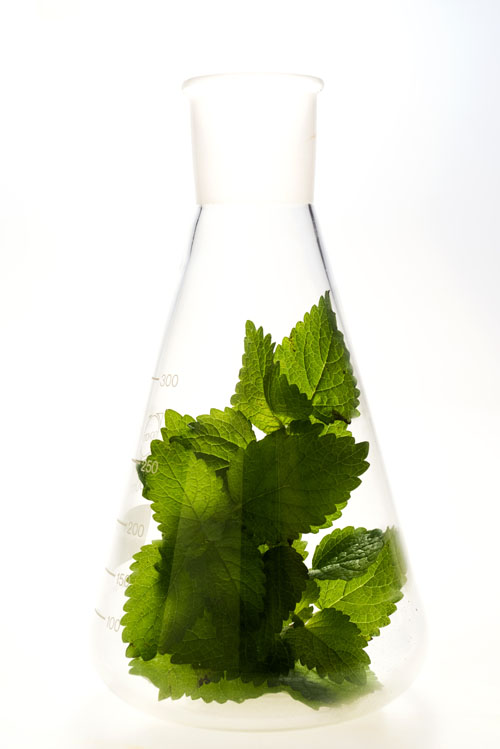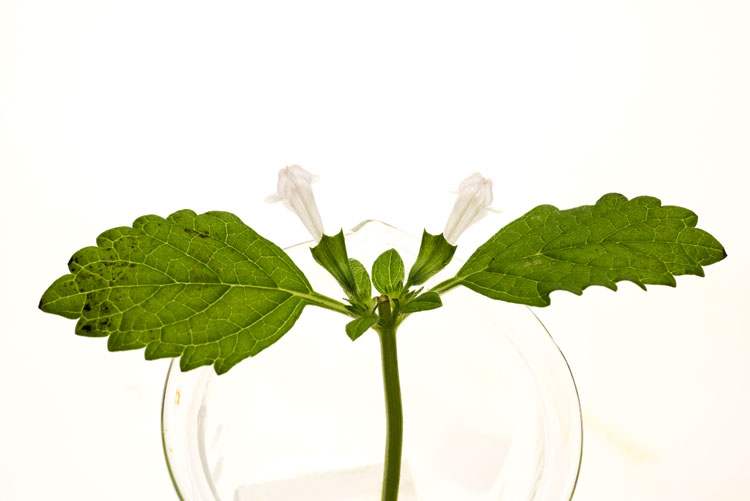We are facing a double epidemic that is still largely misunderstood but has a major impact on public health.1
Our days are constantly bombarded with stimuli, often anxiety inducing, that drain our cognitive resources.
Moreover, maintaining a balance between professional and personal commitments, a demanding work schedule and many other factors all disrupt our long-term emotional state, eventually compromising our ability to recover during sleep.
At the same time, poor sleep quality adversely influences our quality of life. Sleep is a fundamental pillar of our overall health; its quality and duration are closely linked to our mental and emotional well-being.
During sleep, our body and mind undergo various processes of cellular repair, memory consolidation, emotion processing and the elimination of brain toxins.
Good quality sleep can help to regulate our emotions and improve cognitive abilities such as learning and attention. RELISSA™, a Melissa officinalis L. extract formulated with Phytosome® technology, has been shown to play a key role in terms of maintaining this equilibrium.
Lemon balm has been used for centuries in various applications because of its soothing and anti-stress properties, thus promoting sleep and relaxation.
Among the studied effects of the plant are its antioxidant activity, spasmolytic attributes and neuroprotective capacity.2,3 The plant has been found to be a source of more than 50 compounds, including volatile ones, but the main active principles are hydroxycinnamic and rosmarinic acid and their derivatives.2

These benefit from multiple functional characteristics, including their ability to balance mood. So far, numerous scientific studies have been done to examine the use of the plant and its preparations at various doses and administration schemes.3
However, experimentation with lemon balm extracts has been blighted with a lack of standardisation, low quality preparations being made available to the market and/or high or unclear effective dosages.
All these issues have prevented traditional M. officinalis extracts from delivering their promised health benefits. Indena’s research has focused on optimising the efficacy of M. officinalis L. phytonutrients in its formulations.
The result is a standardised and reliable ingredient that aims to naturally rebalance our quality of life.
Melissa Phytosome is a health food ingredient derived from M. officinalis L. that has been formulated with phospholipids to optimise its dispersion in gastrointestinal fluids and enhance the biological performance of hydroxycinnamic and rosmarinic acid.
Phytosome is a multifaceted technology platform that optimises the performance of many natural actives in numerous ways, positively affecting the absorption, effectiveness and target reach of a wide range of natural compounds.
Relissa embodies Indena’s approach to enhancing a quality ingredient (Melissa officinalis L.) and creating a new botanical ally. Supported by science and validated by Nature, it’s also melatonin-free to promote relaxation and peaceful sleep.
Composition and technical specifications
Melissa Phytosome is presented in the form of a light green-brown powder for use in food supplements. The ingredient is standardised to ≥17% and ≤23% hydroxycinnamic acids by HPLC and the rosmarinic acid content can also be provided for informational purposes.
In vitro and clinical studies

Recent clinical evidence confirms that Melissa Phytosome provides evidential support for mood, stress, emotional health and sleep, thus ensuring a tangible quality of life benefit.
A controlled, randomised, double-blind, placebo-controlled clinical study was done with 100 subjects using internationally validated questionnaires.4
The product was administered at a dose of 200 mg, twice daily, for a period of 21 days, resulting in a statistically significant improvement of emotional state, sleep quality (measured using the PSQI scale) and overall quality of life.
In addition to the clinical study, any potentially relevant interactions have also been examined. With the influence of the microbiome on our health and well-being gaining increasing attention, particularly regarding mood and sleep, Indena felt it was an avenue that had to be explored.
For example, Lactobacillus rhamnosus, a bacterium capable of colonising the human gastrointestinal tract, may improve nocturnal rest and rapid eye movement (REM) sleep.
This occurs by the production of short-chain fatty acids (SCFAs) that control the expression of genes responsible for sleep-wake rhythms.
Melissa Phytosome has demonstrated no negative interactions with Lactobacillus rhamnosus, thus preserving its beneficial effects. Furthermore, comprehensive in vitro screening has been done on cellular systems and enzymes to identify key mechanisms of action.
Specifically, antioxidant activity, free radical scavenging and neuroprotective functionalities have been investigated.
Particularly noteworthy is the modulation of the enzyme GABA-transaminase (responsible for the breakdown of GABA), a key enzyme involved in rebalancing the GABAergic system that governs anxiety and sleep.5
Applications and dosage
Melissa Phytosome can be used in various dietary supplement formulations, both as a valuable supporter of emotional well-being and to improve the quality and quantity of sleep. The recommended dose is 200 mg once or twice a day.
References
- V.K. Chattu, et al., “The Global Problem of Insufficient Sleep and Its Serious Public Health Implications,” Healthcare 7(1), 1 (2019): doi:10.3390/healthcare7010001.
- F. Shakeri, A. Sahebkar and B.l. Javadi, “Melissa officinalis L. — A Review of Its Traditional Uses, Phytochemistry and Pharmacology,” Journal of Ethnopharmacology 188, 204 (2016): doi:10.1016/j.jep.2016.05.010.
- J. Świąder, K. Startek and C.H. Wijaya, “The Therapeutic Properties of Lemon Balm (Melissa officinalis L.): Reviewing Novel Findings and Medical Indications,” Appl. Bot. Food Qual. 92, 327 (2019): doi:10.5073/JABFQ.2019.092.044.
- A. Bano, et al., “The Possible “Calming Effect” of Subchronic Supplementation of a Standardised Phospholipid Carrier-Based Melissa officinalis Extract in Healthy Adults with Emotional Distress and Poor Sleep Conditions: Results from a Prospective, Randomised, Double-Blinded, Placebo-Controlled Clinical Trial,” Front. Pharmacol. 14, 1250560 (2023).
- M. Kara, et al., “An In Vitro Analysis of a Standardized Phospholipid Carrier-Based Melissa officinalis L. Extract as a Mild Sedative and/or Calming Agent: Potential for Therapeutic Application in the Management of Emotional Distress and Sleep Disorders Conditions,” submitted for review in Front. Pharmacol.
